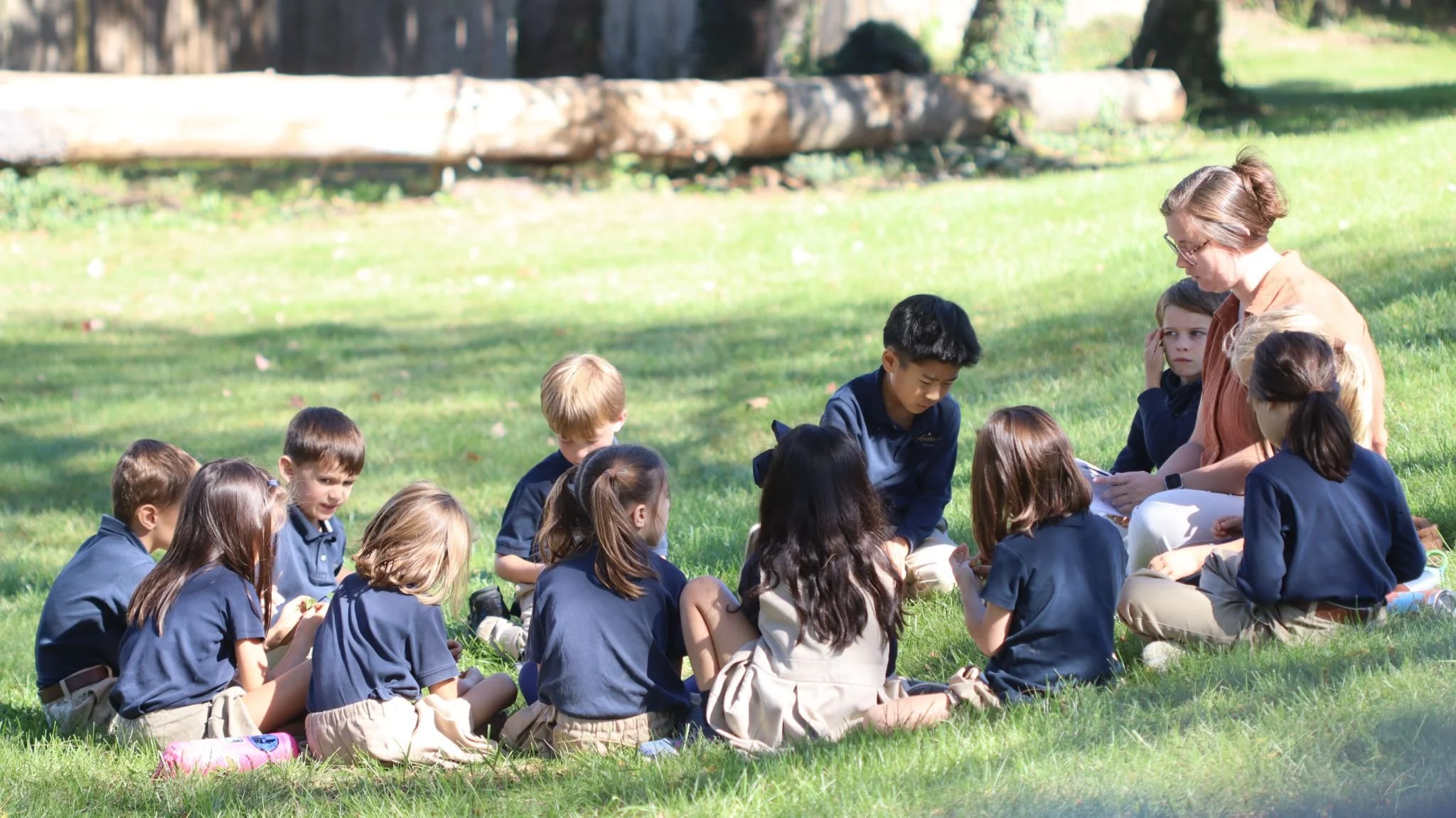Teachers Are Students, Too
Ms. Beane with her 1st Grade students
Dear Parents,
Every few months, an email appears in your inbox requesting snacks for our weekly teachers’ meetings. Flavored bubbly waters, cheese sticks, granola bars, and fruit go a long way with the staff as we gather each Wednesday until 5 p.m., addressing all manner of topics that are critical to the success of our mission of providing a living education to your children.
Each meeting begins with celebrations from the classroom. Teachers share experiences with books, moments of humor, hurdles overcome, and endearing words from their students. Rascal by Sterling North, which is being read in 3rd grade, has brought many smiles—along with a Spanish song currently being sung in class called “Cielito lindo.”
Next come administrative logistics, and then we move into the heart of the meeting, which rotates between philosophy, secondary teaching skills, and model lessons—each vital to our continued growth. As I shared at the Ambleside Experience last month:
“The Charlotte Mason philosophy requires intentional, ongoing educator training. At Ambleside, a teacher’s role is the cornerstone of the learning experience. They are trained not only in what to do, but also in what not to do—working within principles that may feel counterintuitive.
Our classrooms are not the ‘wild west,’ where teachers employ behaviorist techniques at will. Common phrases such as ‘Pay attention, this will be on the test’ or ‘You can do this for extra credit’ are prohibited because they manipulate students rather than respect their God-given desire to know. Our biblical view of children shapes a different approach—one that makes ongoing training essential.”
Much of that training happens in these Wednesday meetings.
Recently, we studied a chapter on the sacredness of personality and discussed Mason’s observation:
“The work of education is greatly simplified when we realize that children, apparently all children, want to know all human knowledge.”
What a powerful truth—to trust that children already possess both the desire and the capacity to learn, without needing to be pressured or coerced. That trust guides us daily.
Model lessons are another key part of our Wednesday meetings. I had the pleasure of presenting a Music Appreciation lesson in mid-March on the 5th movement of Rachmaninoff’s All-Night Vigil. These lessons allow teachers to become students again—listening, reflecting, and learning together. Observations follow, and teachers leave refreshed and inspired for the work ahead.
Finally, we spend time exploring what we call secondary teaching skills—the whats, hows, and whys of exams, reports of growth, and Shakespeare. We study what Mason says about these areas and how to faithfully live them out in practice.
Your contributions—whether a box of granola bars or a case of sparkling water—are more than just snacks. They are tangible acts of support that nourish not only our bodies but also our spirits. These small kindnesses help sustain a culture of deep thinking, joyful learning, and faithful teaching.
Thank you for partnering with us in this meaningful work. We are deeply grateful for your ongoing generosity, encouragement, and trust.
For the children’s sake,
Krise

